The Dental Business Guide Podcast Episode | 2nd February
George Bellamy and Arun Mehra
As a dental specialist, it’s essential to focus on providing the best care for your patients. But it’s also important to manage your finances well to ensure your practice remains profitable. One of the most significant expenses for any dentist is their tax bill. Dealing with taxes can be complex, but there are smart strategies that can legally help you reduce the amount of taxes you need to pay.
Let’s discuss some key techniques that dental specialists can use to lower their tax responsibilities. These include taking advantage of tax breaks and deductions and organising your practice in a tax-efficient manner. By following these tips, you can keep more of your hard-earned money in your pocket while still complying with tax regulations.
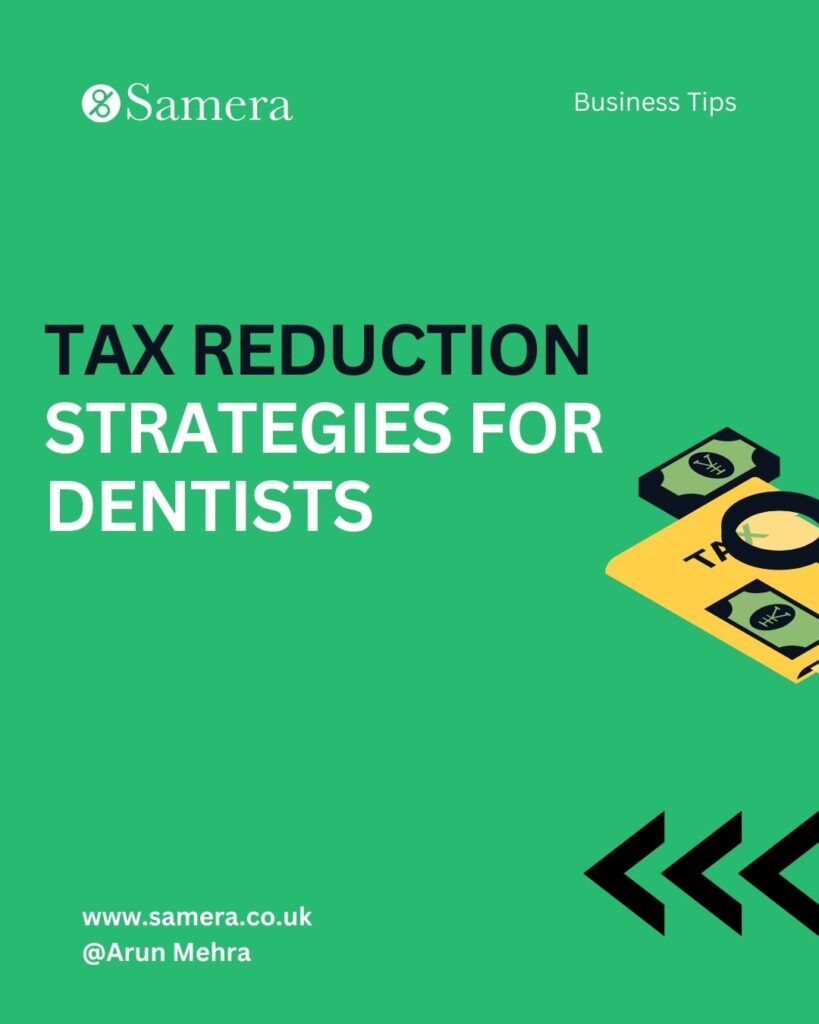
Click here to read our article on Financial tips for dentists.
The importance of reducing tax burdens for dentists
As a dental specialist, you aim to provide excellent care to your patients and run a successful dental practice. However, along with the rewards of your profession, come the challenges of managing your finances and dealing with various tax obligations. Paying taxes is a necessary part of running a business, but it can often feel like a heavy burden, leaving you with less income to reinvest in your practice or achieve personal financial goals.
That’s why it’s crucial for dental specialists to explore smart strategies to reduce their tax rates. By taking advantage of tax-saving opportunities and implementing effective tax-planning techniques, dentists can improve their financial position and keep more of their hard-earned money.
Lowering your tax rate not only improves your financial well-being but also allows you to allocate resources to areas that have the biggest impact on your dental practice. Whether it’s investing in advanced equipment, expanding your services, or providing comprehensive employee benefits, reducing your tax liability can pave the way for growth and success.
In this blog post, we will explore practical strategies that dental specialists can use to lower their tax rates. From understanding deductible expenses to utilising tax breaks and incentives specifically designed for the dental industry, we will provide you with valuable insights and useful tips to make informed decisions that can positively affect your bottom line.
Remember, it is essential to approach tax reduction strategies ethically and within the bounds of the law. By staying informed and working with qualified tax professionals, you can navigate the complex world of taxes with confidence and discover excellent opportunities to improve your financial situation. So, let’s dive in and explore smart techniques that can help dentists honestly reduce their tax rate and unlock their practice’s full potential.
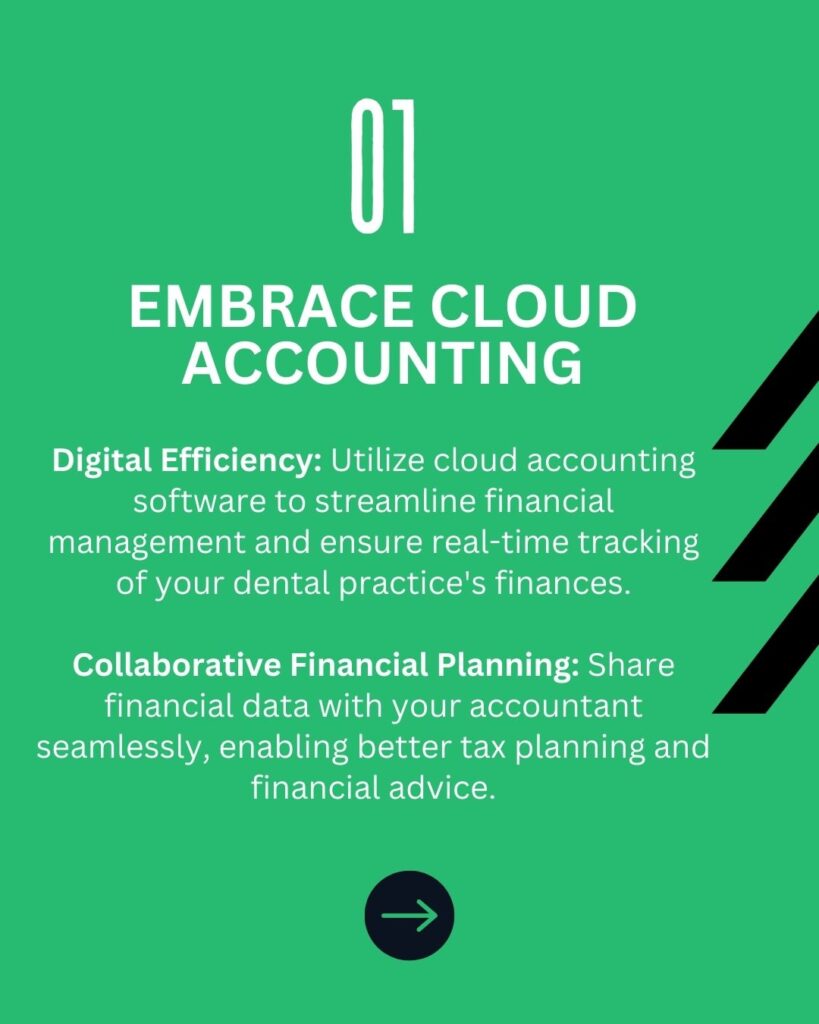
Action Point
Explore tax-saving strategies like understanding deductible expenses, utilizing industry-specific tax breaks, investing in retirement plans, employing family members, and consulting with tax professionals to effectively reduce your tax rate and enhance your dental practice’s financial health.
Click here to read our blog on 10 Tax-saving tips for vets.
Understanding the unique tax challenges faced by dentists
Dental specialists, like many other professionals, face unique tax challenges that require a deep understanding of the dental industry and its specific tax rules. To handle their taxes well and improve their financial situation, dentists need to know about these challenges.
One major challenge is figuring out which expenses they can deduct from their taxes. Dentists often deal with a complex mix of deductible and non-deductible expenses, such as equipment purchases, office rent, employee salaries, and even continuing education costs. Knowing which expenses can be claimed as deductions is crucial for saving on taxes.
Another big challenge for dentists is managing the tax implications of owning a dental practice. Owning a practice involves various tax considerations, like choosing the best business structure (like sole ownership, partnership, or corporation) and understanding the tax effects of selling a practice. Staying updated on the ever-changing tax regulations is essential to follow the rules and minimise tax obligations.
Retirement planning can also be tricky for dentists due to the physical demands of their profession. Planning for a comfortable retirement is important, and dentists can benefit from knowing about tax advantages linked to retirement savings. These options can help them save for retirement while reducing their tax burden.
Moreover, dental specialists can explore specific tax incentives and credits designed for the dental industry. Taking advantage of tax breaks for investing in advanced dental technology or utilising research and development tax credits for innovative dental procedures can lead to significant tax savings.
Action Point
Dentists face unique tax challenges related to deductible expenses, practice ownership, retirement planning, and industry-specific tax incentives. Understanding these challenges is crucial for managing taxes effectively and improving financial outcomes in the dental profession.
Contact us to find out more
Utilising business deductions to lower taxable income
One of the best ways for dentists to legally reduce their taxes is by using business deductions. Business deductions are expenses that are necessary for running a dental practice and can be subtracted from your income, which ultimately lowers the amount of taxes you owe.
As a dentist, you have access to various tax breaks. Firstly, you can deduct the costs of supplies and equipment needed for your practice. This includes dental tools, x-ray machines, office furniture, and even the cost of dental materials like fillings and crowns.
In addition to these significant expenses, you can also deduct the costs of running your office. This includes rent or mortgage payments for your practice space, utilities like electricity and water, and even the expense of office supplies like paper, ink, and computer software.
Furthermore, don’t forget about the expenses related to your professional development. Continuing education courses, conferences, and professional memberships are deductible, as they are essential for improving and honing your skills as a dentist.
To take advantage of these deductions, it’s crucial to keep detailed records of all your expenses and consult with a qualified tax expert. By doing so, you can significantly decrease your taxable income and, in turn, reduce your tax burden as a dentist.
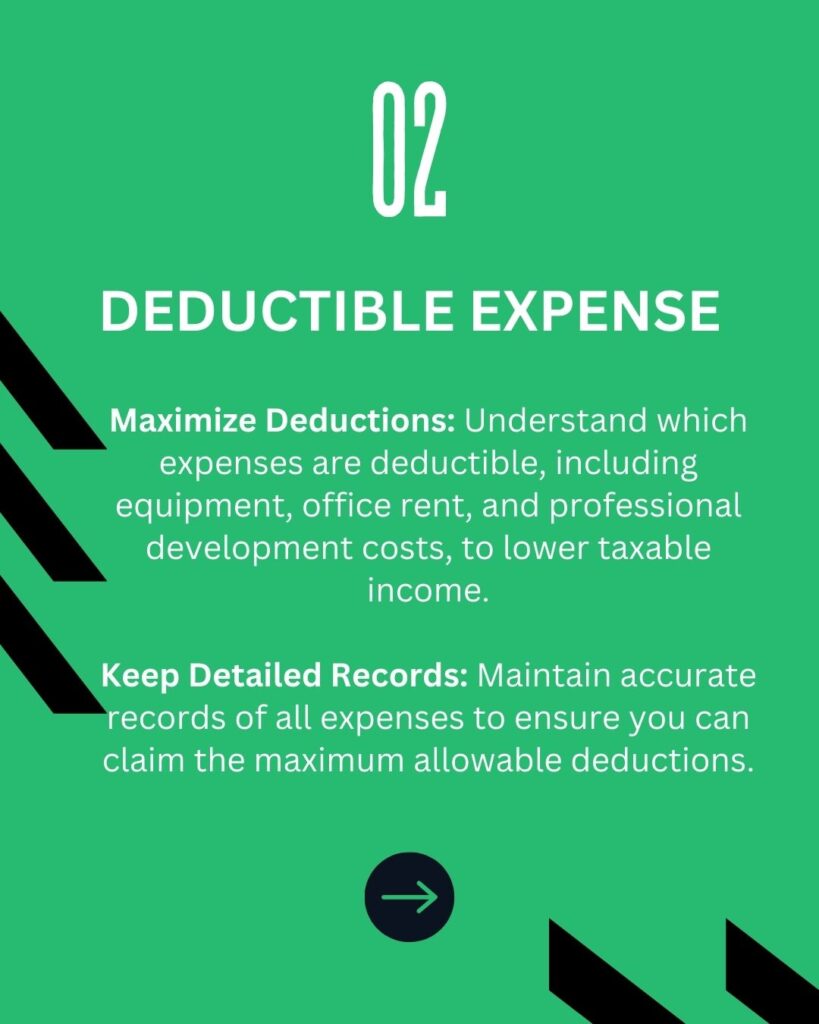
Action Plan
- Understand Deductible Expenses: Dentists must navigate the complex landscape of deductible and non-deductible expenses. This includes distinguishing between equipment purchases, office rent, employee salaries, and continuing education costs. Knowing which expenses qualify as deductions is essential for maximizing tax savings.
- Optimize Business Structure: Owning a dental practice brings unique tax considerations, such as choosing the most advantageous business structure (e.g., sole proprietorship, partnership, or corporation) and understanding the tax implications of practice sales. Keeping abreast of changing tax laws ensures compliance and minimizes tax liabilities.
- Leverage Retirement Planning: Due to the demanding nature of their profession, dentists must strategically plan for retirement. Familiarity with tax-advantaged retirement savings options allows for efficient retirement planning while reducing current tax burdens.
- Capitalize on Industry-Specific Tax Incentives: Dentists should explore tax incentives and credits specifically designed for the dental industry, such as deductions for investing in advanced dental technology or credits for innovative procedures. Utilizing these incentives can lead to substantial tax savings.
- Maximize Business Deductions: By meticulously documenting necessary practice-related expenses, including supplies, equipment, office operations, and professional development, dentists can significantly lower their taxable income. Regular consultation with tax professionals ensures that all eligible deductions are claimed, optimizing tax outcomes.
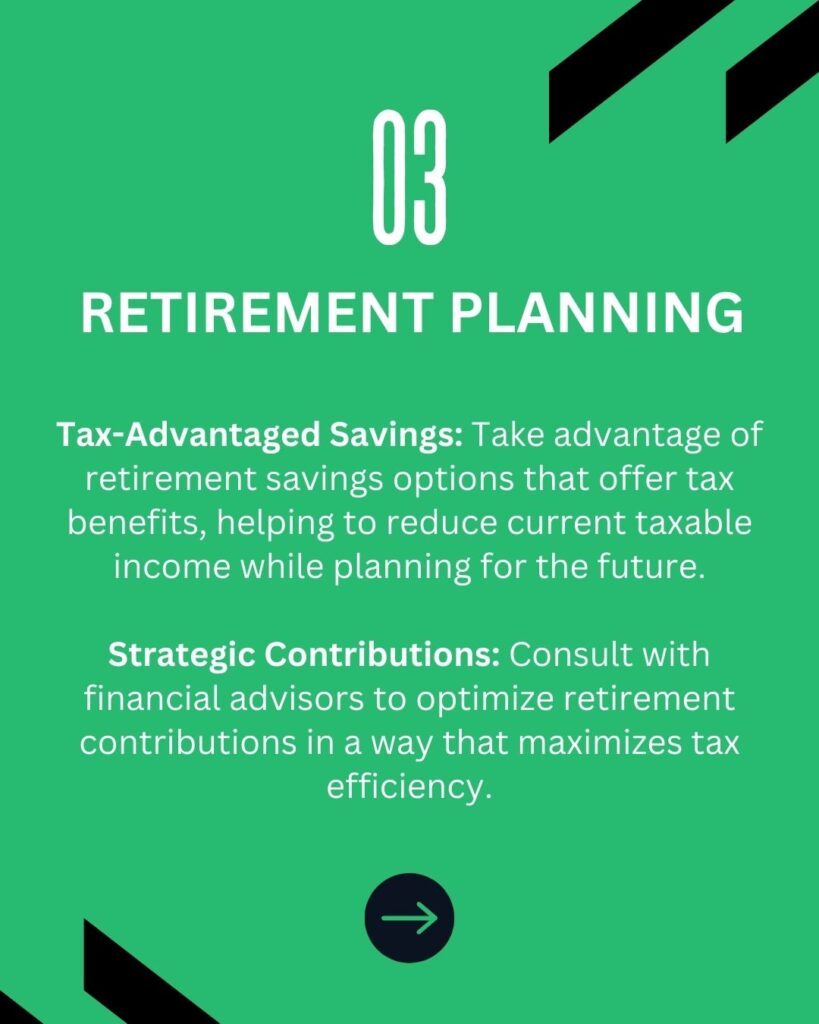
Incorporating your dental practice for potential tax benefits
If you decide to turn your dental practice into a formal business entity, like a professional corporation (PC) or limited liability company (LLC), you can enjoy several tax benefits that may significantly reduce your overall tax burden. Creating a separate legal entity for your practice allows you to manage and deduct business expenses more efficiently, leading to potential tax savings. By having separate bank accounts and credit cards for your practice, it becomes easier to identify and claim deductible expenses, such as equipment purchases, office rent, employee salaries, and even continuing education costs.
Incorporating your dental practice can also open up additional opportunities for retirement planning. It allows you to contribute more pre-tax money to your retirement savings compared to being a sole proprietor. This helps secure your financial future while also reducing your taxable income in the present, leading to potential tax savings.
Another benefit of incorporating your dental practice is the possibility to take advantage of various business tax breaks and credits. For instance, you might be able to deduct expenses related to professional memberships, professional liability insurance payments, marketing and advertising costs, as well as costs for maintaining and upgrading your dental equipment and technology.
It’s important to note that the specific tax benefits and requirements of incorporating your dental practice may vary depending on your location and the specific structure you choose. Therefore, it is recommended to consult with a qualified tax professional or accountant specialising in dental practices to ensure you navigate the process correctly and maximise your tax savings while staying compliant with all relevant regulations and rules.
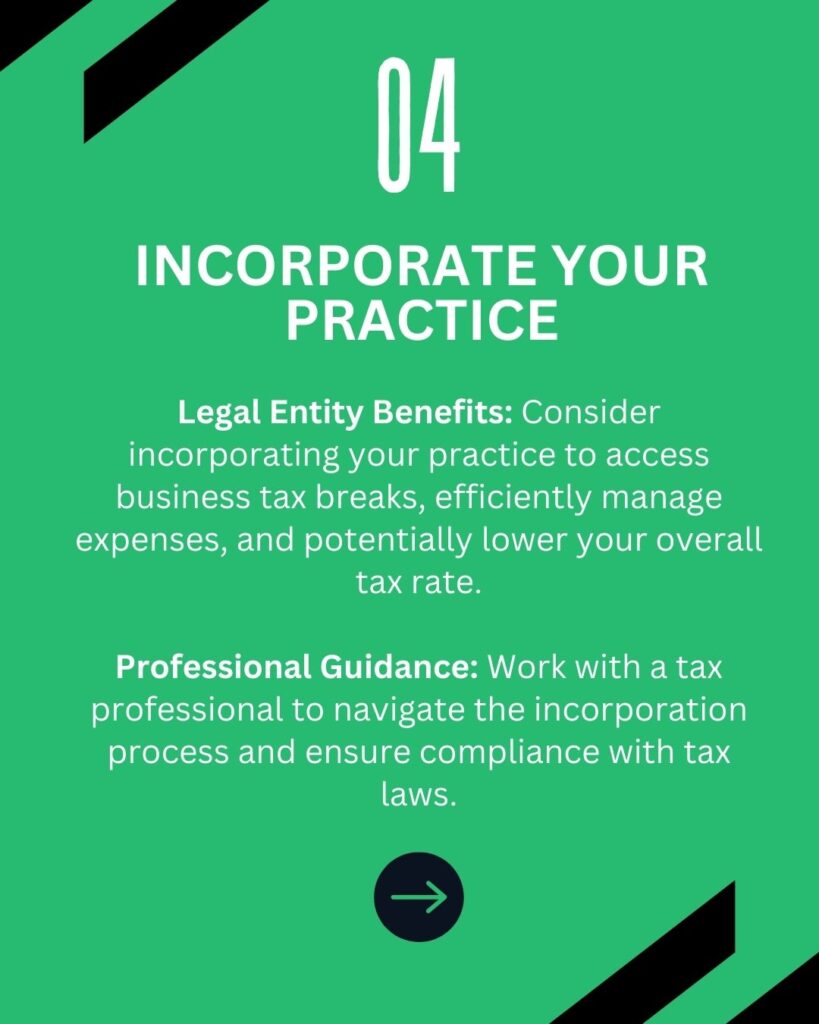
Listen to our episode on how dental practices should structure their finances in 2021.
Implementing tax planning strategies to optimise deductions and credits
Tax planning strategies can significantly reduce the tax burden for dental specialists. By taking advantage of deductions and credits, dentists can make the most of available tax benefits.
One effective strategy is to use all eligible deductions. Dentists can deduct various business expenses, such as equipment, supplies, and lab fees. Keeping detailed records and receipts is crucial to prove these deductions during tax filing. Additionally, dentists may qualify for deductions related to office rent or mortgage interest, utilities, insurance payments, and professional memberships.
Another important tax planning technique is to maximise available tax credits. Dentists should explore and understand the credits they may be eligible for, like the Research and Development Tax Credit or the Small Business Healthcare Tax Credit. These credits can significantly reduce tax liability and provide additional financial benefits.
Timing is also critical for tax planning. Dentists can strategically time their equipment or property purchases to take advantage of available tax deductions or depreciation benefits. By working with financial advisors or accountants, dentists can ensure they make these purchases at the most advantageous times for tax purposes.
Lastly, staying informed about changes in tax regulations and rules is essential. Tax codes can evolve, and new deductions or credits may become available. By staying up-to-date, dentists can adjust their tax planning strategies proactively to make the most of any relevant changes.
Tax planning strategies require careful consideration and should be executed with expertise. Dentists should consult with qualified tax professionals who specialise in working with medical professionals. This way, dentists can navigate the complexities of tax planning and legitimately reduce their tax burden in an effective manner.
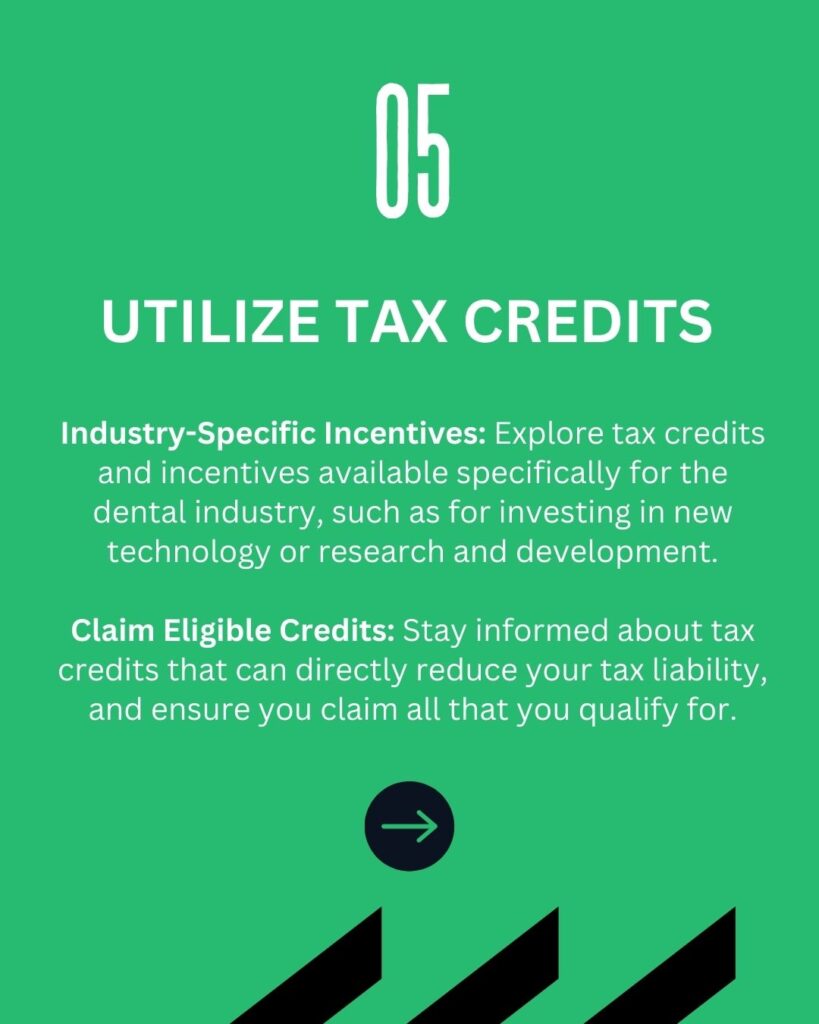
Read more about tax saving tips for dentists.
Hiring a professional tax advisor with expertise in dental practices
Bringing in a professional tax advisor who specialises in dental practices can be a game-changer for reducing your tax burden as a dentist. These specialised advisors understand the unique tax challenges and opportunities that dentists face, so it might be tempting to handle your taxes on your own or rely on a general accountant.
These experts are well-informed about the dental industry and keep up with the latest tax laws and rules for dental practices. They can find deductions and tax breaks that you might not be aware of, ensuring you make the most of all suitable tax-saving strategies.
A professional tax consultant can also review your financial records, identify potential areas of concern or non-compliance, and help you implement effective tax planning strategies. They can analyse your practice’s finances, find areas where you can optimise deductions, and make sure you follow all tax regulations, reducing the risk of audits or penalties.
Moreover, having a tax advisor who understands the dental business can offer valuable insights and guidance on practice structuring, retirement planning, and investment strategies that can further decrease your tax rate in the long run.
Although hiring a tax advisor may involve some costs, the potential tax savings and peace of mind they provide can far outweigh the expense. By entrusting your tax planning and compliance to a professional with specialised knowledge of the dental industry, you can focus on what you do best: providing exceptional dental care to your patients, while ensuring that your tax burden is legally minimised.
Read more about our accounts services for dentists, including our 10 vital things to look out for in a dental accountant.
Staying updated on changing tax laws and regulations
As a dental specialist, it’s crucial to stay updated on changes in tax regulations and rules to really reduce your tax rate. Tax laws can change frequently, so it’s essential to be aware of any updates or adjustments that could impact your dental practice. Not following these changes could lead to penalties or missed opportunities to lower your tax bill.
One way to stay current is by regularly consulting with a tax professional who specialises in dental practices. These experts can provide valuable insights and guidance on the latest tax regulations specifically tailored to your profession. They can help you navigate complex tax codes, identify deductions, and make sure you maximise your tax-saving opportunities.
In addition to seeking professional advice, it’s also beneficial to stay informed through reliable sources like government websites, tax publications, and industry associations. These resources often provide updates on tax regulations and rules that may directly affect dentists.
By being proactive and well-informed about changing tax regulations, you can carefully plan your financial decisions, take advantage of available deductions, and ultimately lower your tax rate. Implementing this smart strategy will not only save you money but also ensure that you are in compliance with the law, giving you peace of mind for your dental practice.
We hope you found our blog post about smart ways to lower dentists’ tax bills informative and helpful. Taxes can be a significant expense for dental practices, but with the right strategies, you can legally reduce your tax burden and keep more of your hard-earned money. By following the tips in this article, you can make important financial decisions that will benefit your practice and contribute to its long-term success. Remember, it’s always recommended to consult with a qualified tax professional to ensure compliance with the latest tax regulations and rules.
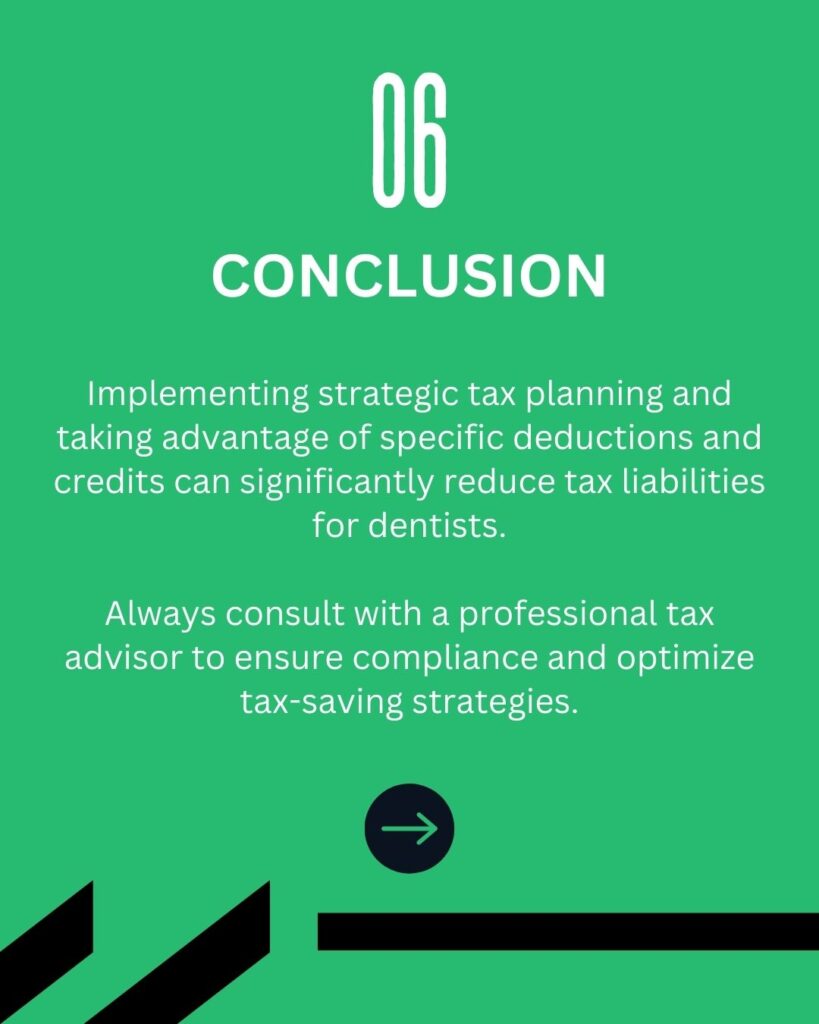
Action Points
- Incorporate Your Practice: Consider incorporating your dental practice into a formal business entity like a PC or LLC to manage business expenses more efficiently and enjoy potential tax benefits. This move can streamline the process of identifying and claiming deductible expenses, allow higher pre-tax contributions to retirement savings, and enable you to take advantage of specific business tax breaks and credits. Consult with a tax professional to navigate this process correctly.
- Implement Tax Planning Strategies: Utilize tax planning strategies to optimize deductions and credits, such as fully leveraging eligible business expenses, maximizing tax credits, timing equipment purchases for tax advantages, and staying informed about tax law changes. Collaborate with financial advisors or accountants to ensure strategic timing and compliance.
- Hire a Specialized Tax Advisor: Engaging a tax advisor with expertise in dental practices can provide insights into unique tax challenges and opportunities, ensuring compliance and maximizing tax-saving strategies. They can offer tailored advice on structuring your practice, retirement planning, and investment strategies to minimize tax liabilities effectively.
- Stay Updated on Tax Laws: Keeping abreast of changing tax laws and regulations is crucial for dental specialists to avoid penalties and capitalize on new tax-saving opportunities. Regular consultation with a tax professional, along with self-education through reputable sources, can help you remain compliant and optimize your financial planning.
By incorporating your practice, implementing strategic tax planning, consulting with specialized advisors, and staying informed on tax changes, you can effectively reduce your tax burden and enhance the financial health of your dental practice.
Check out our other articles, webinars and podcasts in the Samera Learning Centre.
How Can Dentists Reduce Their Tax Legitimately FAQs
What are some legitimate ways for dentists to reduce their tax liability?
Legitimate ways for dentists to reduce their tax liability include:
- Maximizing pension contributions for tax relief.
- Claiming allowable business expenses like dental equipment and office costs.
- Using capital allowances to deduct the cost of significant assets.
- Considering incorporation to benefit from lower corporation tax rates.
- Making charitable donations for tax deductions.
- Investing in tax-efficient schemes like ISAs.
How can pension contributions lower my tax bill?
Pension contributions lower your tax bill by reducing your taxable income. Contributions to a registered pension scheme are eligible for tax relief, meaning you pay less tax on the amount contributed. For example, higher-rate taxpayers can effectively get 40% tax relief on their contributions, while basic-rate taxpayers get 20%. This makes pensions a powerful tool for both saving for retirement and reducing current tax liabilities.
What tax reliefs are available for dental equipment purchases?
Tax reliefs available for dental equipment purchases include capital allowances, such as the Annual Investment Allowance (AIA), which allows you to deduct the full cost of eligible equipment from your taxable profits in the year of purchase. Additionally, if the cost exceeds the AIA limit, you can claim writing-down allowances to spread the tax relief over several years. These reliefs reduce your taxable income, thereby lowering your tax liability.
Can I use incorporation to reduce my taxes?
Yes, incorporating your dental practice can reduce your taxes. By operating as a limited company, you can benefit from lower corporation tax rates compared to personal income tax rates. Additionally, you can pay yourself a combination of salary and dividends, which can be more tax-efficient than drawing all income as a sole trader. Incorporation also allows for better tax planning opportunities, such as pension contributions and other allowable expenses.
How does claiming allowable expenses affect my tax?
Claiming allowable expenses reduces your taxable income, thereby lowering the amount of tax you owe. These expenses include costs directly related to running your dental practice, such as equipment, professional fees, and office supplies. By deducting these expenses from your total income, you effectively decrease your taxable profit, which results in a lower tax liability. Accurate record-keeping is essential to ensure you can substantiate these claims if needed.
What are the benefits of making charitable donations?
Making charitable donations offers several tax benefits. Donations to registered charities can qualify for tax relief through Gift Aid, which allows charities to claim an extra 25% on top of your donation from HMRC. For higher-rate taxpayers, you can claim the difference between the higher rate of tax and the basic rate on your donation amount, further reducing your tax bill. Charitable giving also supports causes you care about while providing financial benefits.
How do tax-efficient investments help in tax planning?
Tax-efficient investments, such as ISAs, pensions, and certain venture capital schemes, help reduce your taxable income, allowing you to save on taxes while growing your wealth. Contributions to these investments may offer tax relief or exemptions, and the growth of your investments can often be tax-free. These strategies are a key part of tax planning, helping you maximize your after-tax returns and meet long-term financial goals.
Is there a tax advantage to employing family members?
Yes, employing family members in your dental practice can offer tax advantages, provided they are genuinely working and paid a reasonable salary. The wages you pay them are deductible as a business expense, which reduces your taxable profits. However, the salary must reflect the work done and be in line with what you would pay an unrelated employee. This strategy can help shift income to family members who may be in lower tax brackets, reducing the overall tax burden.
How does timing of income and expenses impact tax?
The timing of income and expenses can significantly impact your tax liability. By strategically timing income to fall into a lower tax year or deferring expenses to a higher-income year, you can reduce the overall tax burden. For example, bringing forward expenses before the end of the tax year can increase deductions and lower taxable income. Similarly, delaying income until the next tax year may help you stay within a lower tax band.
What are the risks of aggressive tax planning?
Aggressive tax planning involves strategies that push the boundaries of tax laws to minimize taxes, which can be risky. The main risks include increased scrutiny from HMRC, potential penalties, interest on unpaid taxes, and damage to your reputation. If HMRC deems the strategies to be tax avoidance or evasion, the financial and legal consequences can be severe. It’s important to balance tax efficiency with compliance to avoid these risks.
How can I use capital allowances to reduce tax?
You can use capital allowances to reduce tax by deducting the cost of qualifying business assets, such as dental equipment, from your taxable profits. The Annual Investment Allowance (AIA) allows you to claim up to 100% of the cost of these assets in the year of purchase, up to a specified limit. If the cost exceeds the AIA, you can claim writing-down allowances to spread the relief over several years, thereby reducing your overall tax liability.
What is the role of a tax advisor in reducing my taxes?
A tax advisor helps reduce your taxes by providing expert guidance on tax-efficient strategies, ensuring you claim all available deductions and reliefs, and helping you comply with tax laws to avoid penalties. They can assist with tax planning, optimize your business structure for tax purposes, and offer advice on investments and pension contributions. By staying up-to-date with tax regulations, a tax advisor ensures you maximize savings while remaining compliant with HMRC.
How do home office expenses contribute to tax savings?
Home office expenses can contribute to tax savings by allowing you to deduct a portion of your household expenses, such as utilities, rent, or mortgage interest, based on the space and time used for business purposes. These deductions reduce your taxable income, leading to lower tax liability. It’s important to keep detailed records of the expenses you claim to ensure they are proportionate and justifiable.
What are the implications of using salary sacrifice schemes?
Salary sacrifice schemes allow you to exchange part of your salary for non-cash benefits, like pension contributions or childcare vouchers. This reduces your taxable income, leading to tax savings. The benefit is that you pay less income tax and National Insurance on a lower salary. However, it can also reduce your entitlement to some state benefits, like the State Pension, so it’s important to balance the benefits with potential drawbacks.
Can I claim travel expenses to reduce tax?
Yes, you can claim travel expenses to reduce tax, provided they are for business-related travel, such as visiting patients, attending meetings, or traveling between different work locations. These expenses can include fuel, public transportation, accommodation, and meals while on business trips. However, commuting between home and your regular place of work is not deductible. Accurate records and receipts are essential to support your claims.
Learn more: Related Articles
About the Author

Neha Jain
Neha Jain is a skilled content writer with a rich background in business and financial knowledge. With a bachelor’s degree in English Literature and Psychology, Neha has honed her writing skills, furthering her expertise with the Content Writing Master Course (CWMC) at IIM SKILLS and a Content Marketing Certification from HubSpot Academy.
Working alongside our business development experts, Neha specialises in helping accountants, dentists and other healthcare professionals start, scale and sell their businesses.
Reviewed By:
Arun Mehra
Samera CEO
Arun, CEO of Samera, is an experienced accountant and dental practice owner. He specialises in accountancy, financial directorship, squat practices and practice management.
Dental Accounts & Tax Specialists
As dental practice owners ourselves, we know what makes a clinic tick. We have been working with dentists for over 20 years to help manage their accounts and tax.
Whether you’re a dental associate, run your own practice or own a dental group and are looking to save time, money and effort on your accounts and tax then we want to hear from you. Our digital platform takes the hassle and the paperwork out of accounts.
To find out more about how you can save time, money and effort on your accounts and tax when you automate your finances with Samera, book a free consultation with one of our accounting team today.
Contact Information
Fill in the form and our team will get back to you as soon as possible.
or
or
Dental Accounts & Tax: Further Information
Make sure you never miss any of our articles, webinars, videos or events by following us on Facebook, LinkedIn, YouTube and Instagram.




